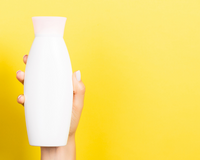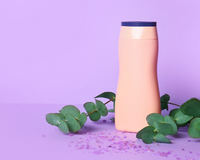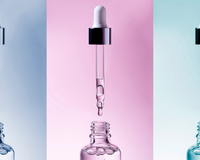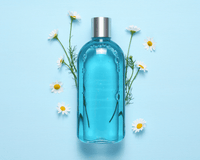Best Schools For Courses For Making Natural Skin Care Products
It takes more work to start a skincare brand than, say, a print-on-demand t-shirt business. You will need to spend time learning about things like basic chemistry, labeling laws, and how to work with a manufacturer at the Best Schools For Courses For Making Natural Skin Care Products. You may also have to pay a lot of money up front.
But it is possible to get started on a small budget if you are passionate and creative. Here, we'll show you how to start from scratch with a skincare line.
By 2025, the global skin care market is expected to be worth $183 billion. Independent brands have been a big part of the growth in the past few years. Estée Lauder and L'Oréal are two well-known brands that are not growing. The growth of the entire beauty industry is being driven by indie beauty and clean beauty. And the big brands are trying to keep their footing by buying up smaller ones.
Where To Get The Best Schools For Courses For Making Natural Skin Care Products?
As Gen Z gets older, there's a big change in how people spend their money. There are a lot of beauty products on the market right now, but there is still a lot of room for new ideas.
Because the skincare market is always changing, there are still chances for newcomers to start skincare lines. For example, there are current trends toward hybrid beauty (products that combine cosmetics and skincare), cannabis-based products, and clean beauty. As Gen Z gets older, there's a big change in how people spend their money. There are a lot of beauty products on the market right now, but there is still a lot of room for new ideas.
New people who want to start skincare companies can win if they can find people who aren't being served by existing brands. Indie brands were the first to make cosmetics for a wide range of skin tones, which is a clear example of this in the cosmetics industry.
How To Choose The Best Schools For Courses For Making Natural Skin Care Products?
Independent brands can get close to a niche audience or solve a specific problem, while legacy brands try to reach as many people as possible.
If you read beauty magazines and pay attention to influencers, you'll be able to spot trends as they happen. But beware of trends that don't last, and make sure you have a plan that will last. Expert: Lately, I've seen people become too dependent on whatever ingredient is popular at the time. Even though the product development cycle has gotten faster over the past few years, it can't always keep up with trends that only last for a short time. You're already behind by four months. By the time you get to the market, that trend may no longer be popular.
Independent brands can avoid these problems by coming up with new ideas instead of following the crowd. Independent brands can get close to a niche audience or solve a specific problem, while legacy brands try to catch everyone. This is because problems change less often than trends.
What Can You Learn At Best Schools For Courses For Making Natural Skin Care Products?
You can connect with your audience through a strong philosophy and brand story, even if you want to go wide or stick to basics in terms of product type or formulation. If you want to make something a certain way or leave out or add certain ingredients, you should really think about it.
Before you even think about what to sell, you should decide what you stand for. During this time, you can get to know your audience, find out what they think, and build trust. Use this time to also get the word out about your upcoming launch and improve your brand's story. If you put money into learning about your market, you might find other niches you hadn't thought of.
There are a few ways to make products. You can make them by hand at home, rent a dedicated manufacturing space, work with a lab to make custom products, or work with a beauty manufacturer on a "private label" approach.
How To Make Skin Care Products?
Face oils, which are easy to make, can be made at home. But if you want to make cosmetics in the US, you must follow FDA rules about ventilation, air control, and surfaces. Even though your manufacturing processes should follow FDA rules, there is a lot of room for businesses that only make things occasionally.
Experimenting with formulations will help you figure out what kind of consistency, look, and smell you want in a formulation. This will put you in a good position to have an informed conversation with your manufacturer.
If you are just starting out, it can be helpful to play around with the ingredients and try to figure this out. But you will still need to work with a manufacturer at some point. Many successful beauty entrepreneurs started their lines in their own kitchens, but as their businesses grew, they moved to a manufacturing facility.
Experimenting with formulations will help you figure out what kind of consistency, look, and smell you want in a formulation. This will put you in a good position to have an informed conversation with your manufacturer.
Product Life Span
Customers often think that "natural" or "organic" products won't have any chemicals in them to keep them fresh. But leaving out preservatives can have a big effect on stability.
Marketing is one of the hardest things for a lot of new founders to figure out.
To be successful in the beauty industry, it's not enough to have a great product. Beauty entrepreneurs need to spend a lot of time figuring out who their audience is and what their needs are.
Labelling Laws
When it comes to beauty products, people tend to be picky and skeptical because there is often conflicting information and too many options. Getting people to trust you is the key to building long-term relationships and getting them to buy from you again.
Labeling rules can be hard to understand for people who are just starting out with a skincare line, and each country or region has its own rules.
Whether you decide to link your personal brand to your business or not, you should still use the fact that your brand is homegrown to make it seem more real. Engage in comments and conversations, feature real people like your customers or new influencers in your content, and be open to feedback.









